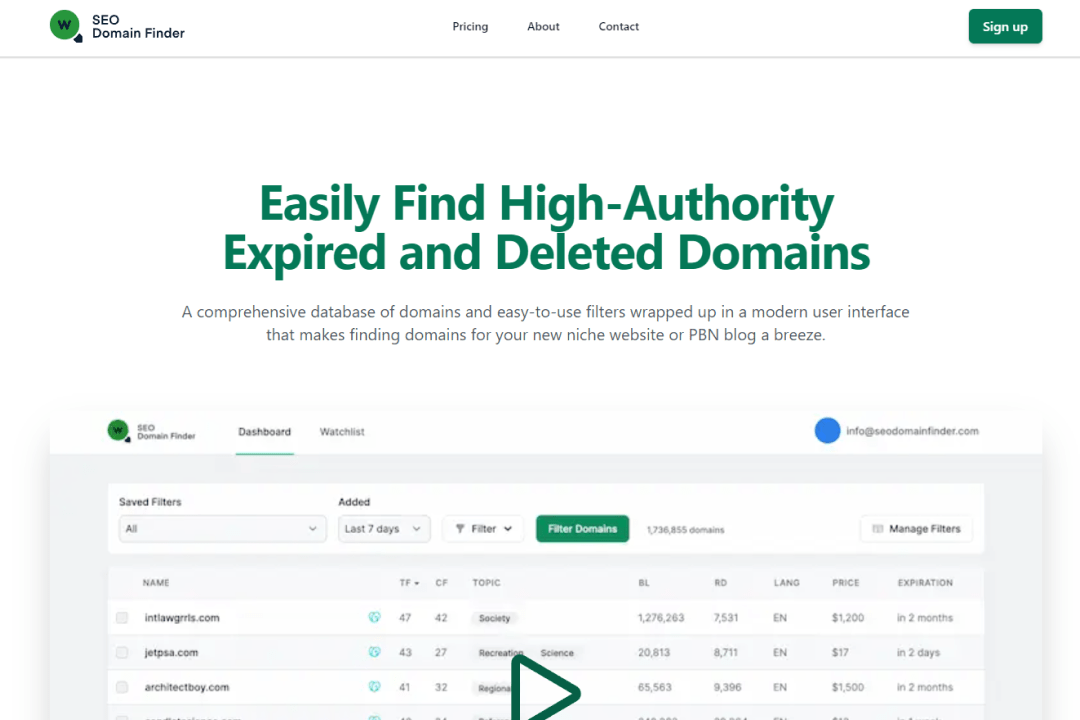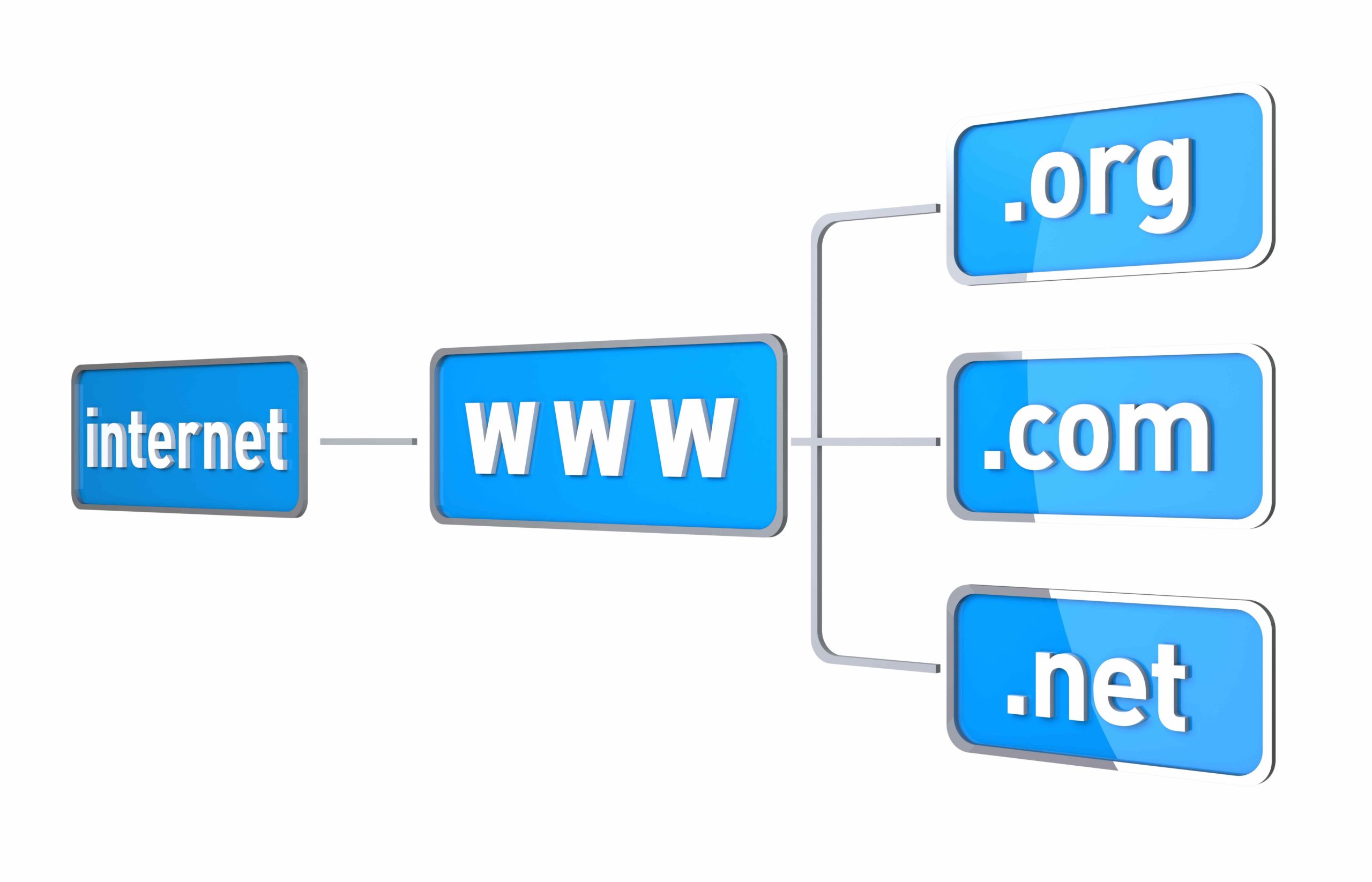
The SEO community has many discussions about the use of an Exact Match Domain (EMD).
An EMD precisely aligns with a user’s search query, containing essential keywords or phrases related to a specific topic, product, or service. Over time, the importance and influence of EMDs on search engine rankings have changed.
In this article, we’ll clarify what exactly EMD is, reveal
its benefits and drawbacks, what Google thinks about it, and, more importantly: whether you need to use one.
Definition of Exact Match Domain
An Exact Match Domain (EMD) is a domain name that precisely aligns with the specific keywords or phrases you aim to rank for on the Google search engine.
EMDs are believed to have benefits in ranking, as they could help satisfy user intent and improve click-through rates. However, the influence of EMDs on ranking has decreased over time.
While Google still values EMDs that are not spammy, they are no longer a guarantee of high rankings. Despite this, EMDs can still play a role in successful SEO, and their impact should be considered part of a broader SEO strategy.
It can also be used for Domain Parking, a practice in which websites are made to generate revenue from ads and affiliate links without having any content on them.
What are the SEO Benefits of EMDs?
An EDM offers some SEO benefits, although its impact has diminished over time due to changes in search engine algorithms. Here are some potential advantages:
- Keyword Relevance: An EMD, by definition, directly matches the targeted keywords or phrases. This alignment may signal to search engines that the website is highly relevant to those specific terms, potentially improving rankings for those keywords.
- Improved Click-Through Rates (CTRs): Users often click on domains that closely match their search queries, believing the content is more likely to meet their needs. This can lead to higher click-through rates, especially for users looking for information aligned with the domain’s exact match.
- Memorability and Brand Recall: EMDs are often easier to remember, contributing to better brand recall among users. This can result in direct traffic to the website as users type in the domain based on their recollection of the keyword.
- Investment Opportunities: EMDs can offer investment opportunities due to their higher value compared to other domains. They are seen as more reliable and trustworthy, which makes them attractive investments for businesses looking for long-term success.
What are the Drawbacks of EMDs?
While EMDs can offer some SEO benefits, it’s important to consider the potential drawbacks.
Here are some of them:
- Algorithmic Changes: Search engines, especially Google, frequently update their algorithms. These changes aim to provide users with more diverse and relevant search results, reducing the influence of EMDs on rankings.
- Over-Optimization Risk: If you have an EMD, even the brand or URL anchor text will contain a keyword. That can cause problems with search engines. Google and other search engines disapprove of the excessive use of exact match anchor text, which can be seen as manipulative and may result in penalties.
- Limited Branding Opportunities: EMDs are inherently focused on specific keywords, potentially limiting the flexibility for branding and diversification. Establishing a brand identity that extends beyond keywords can be challenging when the domain is narrowly tailored to a particular search term.
- Long-Term Viability: The SEO landscape is dynamic, and strategies that may have worked in the past may lose effectiveness over time. Depending solely on an EMD may not be a sustainable long-term approach as search engines evolve and user behavior changes.
- Flexibility Constraints: If your business evolves or expands into new areas, an EMD may become restrictive. Choosing a more versatile and brandable domain allows for greater flexibility in adapting to changes in your business focus.
What Does Google Think About EMDs?
Google’s stance on EMDs has evolved over time. While EMDs were historically considered a significant factor in ranking, their influence has decreased.
Google still acknowledges that EMDs can make a difference and are one of the deciding elements for SEO ranking factors. However, the Google algorithm now reduces the ranking of low-quality “exact-match” domains in search results.
In 2016, webmaster trends analyst at Google Gary Illyes stated on his Twitter that there is nothing especially wrong with EMDs, but he is “hunting” for spammy EMDs that rank in Google.
EMDs provide quality sites an edge over others, but they are no longer a guarantee of high rankings.
Should You Use An EMD?
We believe that you don’t need a website name that exactly matches your industry keywords. It’s actually better to pick a brand name that tells people what you do.
Getting a website name that exactly matches your keywords isn’t crucial for doing well in your chosen field. Instead, think about where you want your business to go in the long run. It’s smarter to think about what you want for the future instead of just going for a website name that might give you quick benefits but could hold back your business from growing in the long run. (find more information here)
However, there are strategies that use EMD domains, but they are usually related to making a large number of sites in low-competition niches and languages.
Frequently Asked Questions
What Is a Partial Match Domain Name?
A partial match domain name is a URL that includes part of the main keyword the website tries to rank for. Unlike exact match domains, which contain the full keyword, partial match domains only include a portion of the keyword. Despite their potential benefits, the influence of partial match domains on ranking has also decreased over time, and their impact should be considered as part of a broader SEO strategy.
What is an example of an EMD domain?
An example of an Exact Match Domain (EMD) is “BestRunningShoes.com.” In this case, the domain precisely matches the search query someone might use when looking for information or products related to the best running shoes. The domain incorporates the relevant keywords, making it an example of an EMD.
Are Exact Match Domains More Expensive Than Other Types of Domains?
Yes, exact-match domains are generally more expensive than other domain types. The selection of a keyword and specific phrasing can impact the price significantly. It’s important to research domain prices before making a purchase.
Conclusion
While EMDs can offer some SEO benefits, it’s essential to consider the potential drawbacks and focus on overall website quality and user experience rather than relying solely on the domain name.
It’s important to consider the impact of EMDs as part of a broader SEO strategy, focusing on quality content, avoiding over-optimization, and considering the impact of domain history on your website’s ranking.











































































































